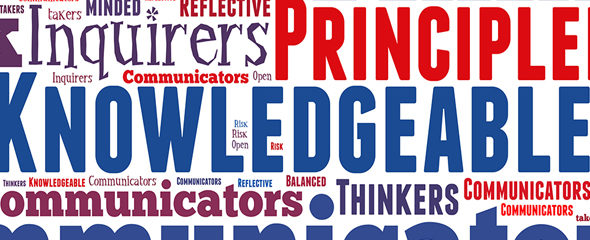The International Baccalaureate® (IB) aims to develop inquiring, knowledgeable and caring young people who help to create a better and more peaceful world through intercultural understanding and respect.
The International Baccalaureate (IB) Primary Years Programme (PYP) is a curriculum designed for students aged 3-12. It is the first part of the IB’s curriculum for 3-18 year olds, culminating in the Diploma Programme, an internationally recognised and respected post-18 qualification. The IB curricula aim to help children become successful learners in the contexts of the 21st Century; to become adults who are able to work successfully in a rapidly changing world, and to have the determination, flexibility and character to succeed in their lives.
The central purpose of the PYP is to develop the attributes and traits identified in the IB Learner Profile. Students are encouraged to become: inquirers, thinkers, communicators, risk-takers, and to be knowledgeable, principled, caring, open-minded, balanced and reflective. They develop these attributes within the classroom, during Town Meetings (assemblies), on the playground, and while participating in UDIS’s many after-school activities. We encourage our whole community to develop these attributes, so students should also be showing these characteristics at home (and so should parents!).
The PYP is all about inquiry: the process through which a learner moves from his or her current level of understanding to a new and deeper level. Our students will be:
- Exploring, wondering and questioning
- Collecting data and reporting findings
- Taking and defending a position
- Using critical thinking skills to understand a concept
- Making and testing theories
- Experimenting and playing with possibilities
- Solving problems in a variety of ways.
Using inquiry-based learning, the PYP is able to engage and challenge students who have many diverse perspectives, values, cultural backgrounds, and languages. UDIS is committed to a developmental approach. This means that students may progress through the programme at different rates.






